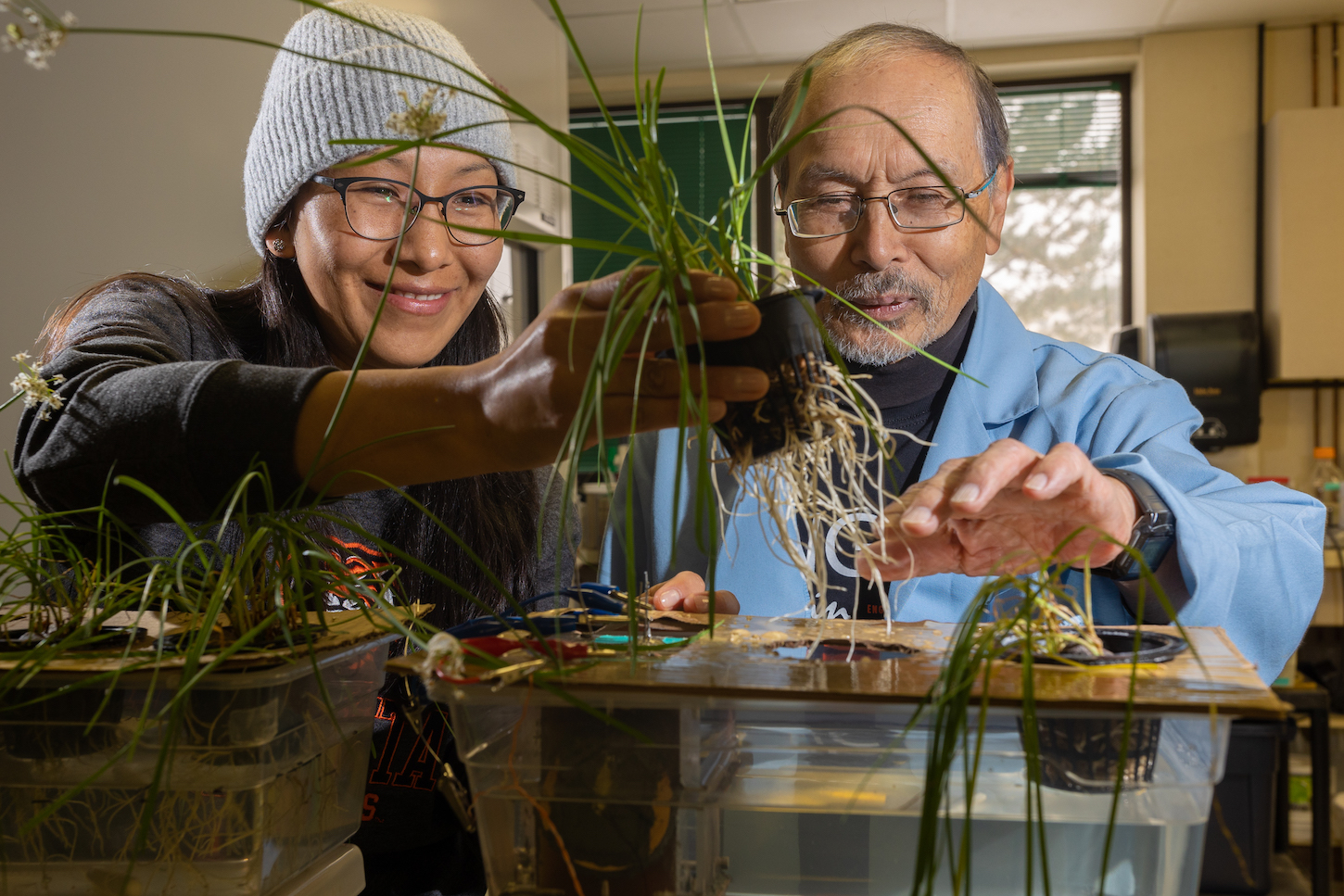Idaho State Student, Professor Develop New Microbial Fuel Cell System
November 14, 2022

A new system that aims to get the most out of microbes in terms of electricity generation and wastewater treatment has been developed by two researchers at Idaho State University.
Recently, N. Evelin Paucar De La Cruz, a doctoral student in the Department of Civil and Environmental Engineering from Huancayo, Peru, published her research, “An Overview of Microbial Fuel Cells within Constructed Wetland for Simultaneous Nutrient Removal and Power Generation,” in the journal Energies. The paper makes a case for integrating microbial fuel cells (MFC) - a fuel cell system that uses microbes to generate electricity - into constructed wetlands to treat wastewater and produce power simultaneously. Specifically, Paucar De La Cruz and Chikashi Sato, professor in ISU’s Department of Civil and Environmental Engineering, created a new type of MFC for use in a hydroponic system (MFC-Hyp) and found that not only is the system able to treat wastewater and produce power, but it’s also capable of growing edible plants at the same time. Paucar De La Cruz found that she could achieve more power output and better treatment of the wastewater using Allium tuberosum, better known as garlic chives.
“Non-renewable resources are being depleted, and creating new technologies for energy production that can be sustainable and environmentally friendly is of great importance and is a necessity, '' said Paucar De La Cruz. “This new technology Dr. Sato and I designed and constructed is still in its infancy. However, it has great potential, and I hope other researchers get interested in our research and help further optimize MFC-Hyp systems.”
“Since the discovery of microbial electrical energy over a century ago, MFC technology has made significant advances in energy generation and recovery,” Sato said. “MFCs can be one of the sustainable energy generation systems of the future, and its technology has evolved into other viable applications, such as removing toxic substances, monitoring environmental quality, powering implantable health devices, and more.”
Paucar De La Cruz’s combined research on energy production, nutrient recovery, and wastewater treatment was the focus of her dissertation. While at Idaho State, she was the author or co-author of seven papers on MFC technology.
“During my master's program at Idaho State, the courses I took sparked my interest in the wastewater treatment field,'' Paucar De La Cruz said. “Wastewater is consistently created by us human beings, and it is not going to disappear from our lives.”
After receiving her doctorate from Idaho State in Engineering and Applied Science, Paucar De La Cruz says she plans to keep building on her knowledge and field experience, and become an expert in the water and wastewater treatment fields.
“I am passionate about water and wastewater treatment, and I intend on spending my career exploring this topic further,” Paucar De La Cruz said. “I plan to keep producing scientific articles in the environmental engineering field, particularly on water and wastewater treatment topics, and I hope to collaborate with other researchers in optimizing this new MFC-Hyp technology.”
For more information on Idaho State University’s Department of Civil and Environmental Engineering, visit isu.edu/cee.
Prospective students can schedule a campus tour at isu.edu/visit.
Categories:
